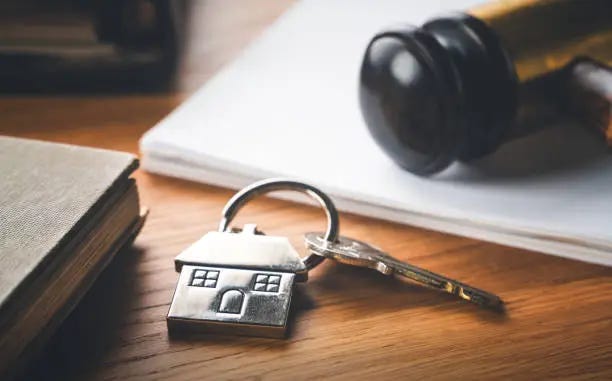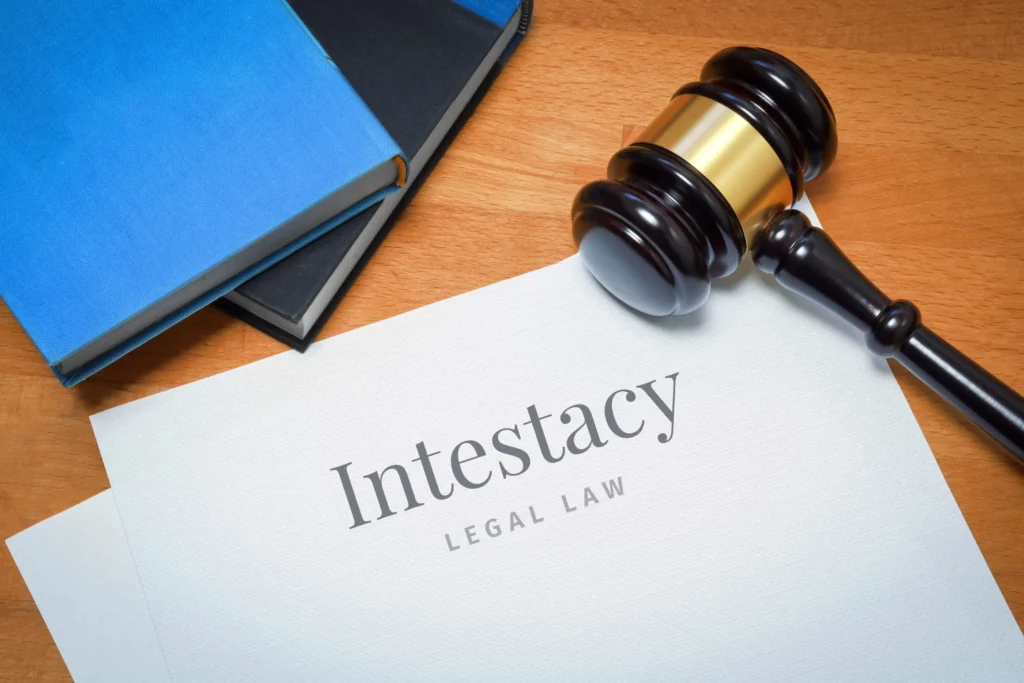Picture this: You’re at the local coffee shop, sipping your favorite brew and chatting with friends about life’s unpredictability. The conversation takes a serious turn as someone mentions wills – those legal documents that seem to hover in the realm of ‘adulting’ and responsibility. You’ve probably heard of them, but how well do you understand the nitty-gritty of wills and their different types; self-proving and traditional wills?
In a world where change is the only constant, having a will is like a guiding hand from beyond the grave. But the world of wills isn’t just about dividing assets; it’s a fascinating blend of personal choices, legal considerations, and sometimes even unexpected quirks. Buckle up as we unravel the mysteries of wills, exploring their diverse types and uncovering the secrets of securing your legacy in a way that’s uniquely you.
Understanding a Will: Your Blueprint For The Future
In life, we accumulate more than just belongings and assets. We gather memories, emotions, and connections that shape our existence. A will, also known as a last will and testament, is a legal document that functions as your voice after you’re gone. It’s a strategic blueprint laying out your desires and decisions regarding the distribution of your estate, including real estate, investments, money, personal belongings, and even digital assets. A will actively encapsulate your intentions, ensuring you allocate your hard-earned assets as you wish and provide for your loved ones according to your directives
This crucial document doesn’t just allocate assets. It is a multifaceted instrument that appoints guardians for minor children, names an executor responsible for carrying out the will’s instructions, and can also outline your preferences for your funeral arrangements or charitable donations. In essence, it’s the ultimate guide to managing what you leave behind and how it should be managed after you’re gone.

Designating beneficiaries within a will is a fundamental aspect. This involves clearly stating who will inherit which assets or possessions. A will actively encapsulates your intentions, ensuring you allocate your hard-earned assets as you wish and take care of your loved ones according to your directives. This can be a family member, a trusted friend, or a professional. Moreover, beyond the allocation of assets and appointment of an executor, a will might encompass specific instructions about the distribution of sentimental or unconventional items.
Types Of Wills
Here’s an overview of some of the various types of wills:
1. Simple Wills: These are the most common and straightforward types of wills. They outline how the testator’s (the person making the will) assets and possessions are to be distributed after their death. Simple wills typically cover basic bequests, guardianship for minor children, and the appointment of an executor to carry out the testator’s wishes.
2. Joint Wills: Usually created by a couple, joint wills combine the of both individuals into a single document. They dictate how assets are distributed after the death of the first person and subsequently after the passing of the second individual. However, these are less common due to their inflexibility once one of the partners passes away.
3. Living Wills (Advance Healthcare Directives): Unlike traditional wills dealing with asset distribution, living wills focus on healthcare preferences. They communicate an individual’s desires for medical treatment when they can no longer express their wishes, ensuring respect for their healthcare preferences.
4. Testamentary Trust Wills: These wills include trusts and are used for more complex financial arrangements. They establish trusts upon the testator’s death, appointing a trustee to manage assets on behalf of beneficiaries, such as minor children or individuals who may need assistance managing inheritances.
5. Holographic Wills: Handwritten wills, also known as holographic wills, are created without the presence of witnesses. While these can be legally binding in some jurisdictions if they meet specific criteria, they can be challenging to validate and may result in legal disputes.
6. Nuncupative Wills: The testator makes these oral wills verbally, usually in the presence of witnesses. People often use them in urgent situations, such as on a battlefield or during an illness. Strict regulations and restrictions govern their validity.
What Is Considered a Traditional Will?

A traditional will is a foundational legal document that serves as a roadmap for the distribution of an individual’s assets, properties, and responsibilities following their passing. Considered “traditional” because it adheres to standard legal norms and requirements, this document encapsulates the wishes and decisions of the testator (the person making the will).
In essence, a comprehensive traditional will typically includes several fundamental components:
1. Asset Distribution: At the core of a traditional will lies the allocation of the testator’s assets and belongings. It delineates who shall inherit specific items, amounts of money, real estate, personal possessions, investments, or any other asset within the estate. You can structure this distribution in various ways, such as gifting specific items to individuals, bequeathing a percentage of the estate to beneficiaries, or creating trusts for specific purposes.
2. Executor Appointment: A pivotal aspect involves the appointment of an executor or personal representative. This person carries the responsibility of executing the instructions laid out in the will. The executor manages the estate, pays off outstanding debts, handles administrative tasks, and ensures the proper distribution of assets according to the testator’s wishes.
3. Guardianship for Minors: For individuals with minor children, the traditional will serves as a tool to nominate a guardian or guardians who will take care of the children in the event of the testator’s demise. This designation ensures the well-being and upbringing of the minors according to the testator’s desires.
4. Legal Requirements: In its traditional form, a will typically needs to comply with specific legal requirements established by state or regional laws. These criteria may include the necessity for witnesses and their signatures, specific language or clauses, and proper execution procedures. Ensuring the will’s compliance with these legal standards is crucial to validate its authenticity and enforceability.
While a traditional will covers fundamental aspects of estate planning, it might not address certain complexities or preferences that individuals may have regarding their assets and their distribution. This realization often leads people to consider alternative types of wills, such as testamentary trusts, joint wills, or living wills, to accommodate specific circumstances or more intricate planning requirements.
What Is a Self-Proving Will?
A self-proving will is a specific type of last will and testament that includes an additional legal component, known as an affidavit, intended to streamline and simplify the probate process after the testator’s passing. This affidavit, signed by the testator and witnesses, attests to the validity of the will without necessitating the witnesses’ appearance in court to affirm their signatures after the testator’s demise.
Crucial elements of a self-proving will encompass:
1. Affidavit Component: In conjunction with the last will and testament, a self-proving will include an affidavit signed by both the testator and the witnesses who were present during the will’s execution. This affidavit explicitly states that the testator properly executed the will, maintained a sound mind while signing, and signed voluntarily. The affidavit essentially serves as a testament to the authenticity and validity of the will.
2. Notarization of Signatures: The signatures of the testator and witnesses, along with the contents of the affidavit, are notarized by a notary public. This notarization process provides an additional layer of assurance regarding the authenticity of the signatures and the credibility of the affidavit’s statements.
The primary advantage of a self-proving will lies in its ability to expedite and simplify the probate proceedings. Ordinarily, during the probate process, the court would need to authenticate the will by confirming the validity of the signatures of the testator and witnesses. However, with a self-proving will, this step is frequently omitted, saving time and bypassing the necessity for witnesses to validate their signatures in court.
Crafting a self-proving will necessitates strict adherence to specific legal requirements, which may vary by jurisdiction. Seeking legal counsel is highly recommended to ensure that the self-proving will adheres to the applicable laws in your area. Furthermore, legal guidance assists in comprehending the essential steps involved in creating a self-proving will, ensuring its enforceability and validity in accordance with regional legal standards.
Which Is Better: Self-Proving Vs Traditional Wills
Determining the most suitable option between a self-proving will and a traditional will involves evaluating their respective features and considering individual circumstances. Each type presents its unique advantages and considerations, contributing to their suitability based on varying preferences and requirements.
Self-Proving Wills:
Pros:
– Streamlined Probate Process: A key advantage of a self-proving will lies in its capacity to streamline the probate process. Including an affidavit signed by the testator and witnesses and notarizing the document eliminates the need for witnesses to appear in court after the testator’s passing to verify their signatures. This streamlining saves time and simplifies the executor’s responsibilities during probate proceedings.
– Time-Efficiency: The absence of the additional step of authenticating signatures in court expedites the probate process, potentially leading to quicker asset distribution and closure of the estate.
Cons:
– Rigorous Requirements: Creating a self-proving will demands strict adherence to specific legal requirements. Any failure to meet these requirements, especially regarding the notarization and signing of the affidavit, might jeopardize the document’s self-proving status and necessitate the involvement of witnesses in the probate process.
– Potential Higher Costs: The involvement of notaries and legal professionals in creating a self-proving will could lead to higher initial costs compared to a traditional will.

Traditional Wills:
Pros:
– Flexibility and Simplicity: Traditional wills are comprehensive and commonly accepted, with fewer specific legal requirements. They offer a straightforward method of expressing testamentary wishes and distributing assets.
– Potentially Lower Initial Costs: Creating a traditional will may involve lower initial costs, depending on the complexity and legal advice required.
Cons:
– Probate Procedures: During probate, the authenticity of the testator’s and witnesses’ signatures may need verification, potentially slightly prolonging the process.
The selection between a self-proving will and a traditional will depends on various factors, including individual preferences, the estate’s complexity, legal requirements in the relevant jurisdiction, and the desired efficiency of the probate process. Seeking professional legal guidance is crucial to thoroughly understand the implications and considerations of both options within the context of one’s specific circumstances, aiding in making an informed decision that aligns with one’s needs and objectives.








